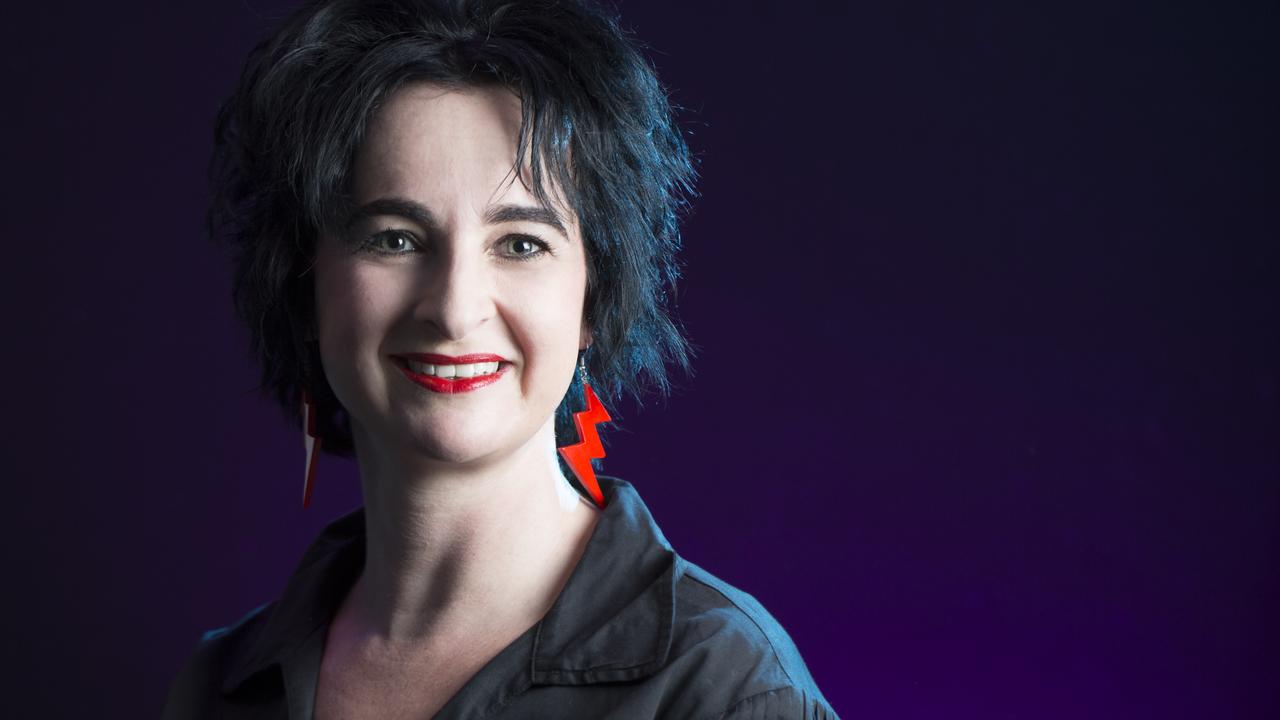Becoming friends with abusive, nasty predator trolls
When Ginger Gorman researched online trolls she explored the darkest recesses of humanity, filled with insults, dick pics and death threats.

“I’m normally not very open about my personal life,” the predator troll tells me, unprompted.
“(But) actually, I want to tell you something about myself.”
This is “Mark”, a vicious and committed internet troll in his mid 20s. He’s a member of an international online syndicate that tries to harm people and wreck their lives. They document all their exploits on their website. We’ve been in contact since the end of 2014.
Make no mistake, I used to be terrified of him. Less so now, but still. I’m uneasy. And he’s never said anything remotely like this to me before.
The most personal thing he’s ever shared is a picture of his gorgeous golden retriever, Jack, on an afternoon walk.
Consequently, I’m sitting bolt upright and paying attention.
Mark continues: “People are scared to get close to me, to trust me. Online and in real life. When I broke up with my ex she told me I’d never have real friends because everyone that knew me felt there was feeling I gave out — that I was bad to be around.”
Intrigued, I ask: “What do you think of that assessment?”
“I’ve always known it,” he says, and quickly adds: “I’m not lonely, if that’s what you’re thinking. I have lots of ‘friends’. (Although) sometimes I wonder to myself how I’d react if a family member or something died. I’m not sure if I’d actually get upset.”
This latter part of his confession isn’t as surprising - right from the start, Mark was always clear with me. He doesn’t experience the same range of emotions as other people.
These messages wing their way to me after my book, Troll Hunting, has been printed — and after he’s read one of the first available copies.
Mark is often quite abusive and nasty towards me. He puts down my journalism, threatens to send me dick pics and — knowing members of my family died in the Holocaust — is deliberately anti-Semitic. I’m therefore shocked when he compliments me, for the first time ever, declaring the book is “very well written”.

Just to make sure I’m not too comfortable though, he rejoins: “When I first met you I thought you were just another delusional sjw (social justice warrior) feminist out to push an agenda. I still think that, though I know you are willing to show both sides, to a point.”
Among alt-right trolls, “social justice warrior” is an insult.
To translate his snarky commentary, the content of the book isn’t what’s bothering him. It’s something else. He wants to know why, when I met and interviewed him on camera in 2017, I described feeling ill afterwards?
“Got to page 38 of your book,” he tells me.
The moment Mark walked away, I was nauseated, sitting on the stage in this giant, reverberant hall. My breath was shallow and unduly loud. The blood was rushing in my ears. The cameraman, Liam, was talking to me and he sounded far away.
“Hold on, Liam,” I said to him, raising my damp palm. “I just need a moment.”
I explain to Mark that the way he causes real-life harm to other people, and the way he talks to me about it, is abhorrent. Nauseating. Being in the same room as him is threatening.
“Then also, it’s my job as a journalist to hold you to account. So it’s a lot of pressure,” I continue.
“I don’t think I have the ability to understand those emotions,” he replies in a manner that seems purely factual, adding that he “just can’t understand” why listening to a predator troll describe how they inflict terrible harm others “would make someone nauseated”.
“But I guess it’s kind of like describing what something looks like to someone who doesn’t have eyes,” he says.
Mark is the one who tells me to contact another troll who goes by the screen name Meepsheep. Mark admires Meepsheep’s trolling tactics and “shitposting”.
So at the end of 2017, I went out to find him. Although strictly speaking, Meepsheep is not a predator troll who causes real-life harm, he’s not exactly a darling either. He’s president of the offensively-named trolling syndicate, the Gay N****r Association of America (GNAA). The GNAA’s high-profile stunts often make the news.
What’s relevant to this story, though, is that Meepsheep is essentially the opposite of me: right-wing, Trump loving, gun-loving and not too keen on women either. I should be his perfect “hate-match.” Except things didn’t really work out like that.
Just like Mark, he was open to talking to me in a way that was surprising. During our first interview, we didn’t use video because he didn’t trust me yet. His Colorado accent rang out of my laptop, disembodied and disconcerting, into the evening of my family’s home halfway across the world.
Putting aside my feelings about his trolling activities — which obviously I don’t condone because trolls have hurt me and my family so much — he’s incredibly bright. Strikingly so. He is well-read and explains that in his eyes, trolling could be a mechanism to point out flaws in society, like racism or how the mental health system treats young white men or the hypocrisy of the media and certain streams of feminism.
Still, I wouldn’t say I liked him. To me, Meepsheep seemed slightly scratchy and stand-offish. But then also extremely polite and helpful, which was both unexpected and curious to me.
How the hell did we actually become friends, then? By accident, really. A pile of terrible things happened in Meepsheep’s life right after that interview, including the death of his dear friend.
Because trolls are always online, messaging each other day and night, Meepsheep started talking to me via a messenger app and telling me not just about trolling, but about the personal things in his life too. Overriding my discomfort, I talked back.
The endless help and honesty he gave me while writing this book is indescribable. It’s deep and wide. He helped me access a culture that is impenetrable to outsiders.
As a joke — because I was spending so much time talking to him online about the book — my husband, Don, started calling Meepsheep my “troll husband”. (Just to be clear though here, we’re only friends.)
The book documents the darkest recesses of humanity. There’s so much hatred and death in those pages. And the thing about trolls is that they can be very funny. Just when I felt like I’d crack in half, Meepsheep would make me LMAO (laugh my ass off).
Once I earnestly asked him on one of the messaging apps whether helping me so much with the book, and becoming friends with me, was going to damage his reputation and standing with his trolling peers.
“You don’t need to worry about that,” he wrote back. “Trolls can’t read.”
At first I couldn’t really understand why I’d become close to him, especially because our relationship is often volatile and we fight. It breaks every personal and professional boundary that I have. (And because of that, there is frequently a kind of impulse to break our friendship on purpose.) And yet here we are.
When I wrote an emotional post about him on Facebook thanking him for his help, more than 2000 people read it. One woman tried to reflect on our strange friendship but posted: “I just cannot make all these ideas make sense in my head.”
In the end, the story of trolling is a story about society and the things that are wrong with it. It’s also the story of what it means to be human — and how complex we all are. That you can be a kind person, and be angry and hateful too. Sometimes at the same time.
I know already that some people will criticise me for engaging with trolling perpetrators in such an empathetic way. But I also know that extreme cyberhate has to stop — people are coming to grave harm because of it.
We are not safe online. And if we don’t ask why these young men are so damaged and angry — or what motivates them to troll — and genuinely listen to their answers, nothing will ever change.
Some minor details in this article have been changed for security reasons, but the context is still factually accurate.
Ginger Gorman is an award-winning social justice journalist. Her first book Troll Hunting, published by Hardie Grant Books, is available in stores nationally from 1 Feb 2019




